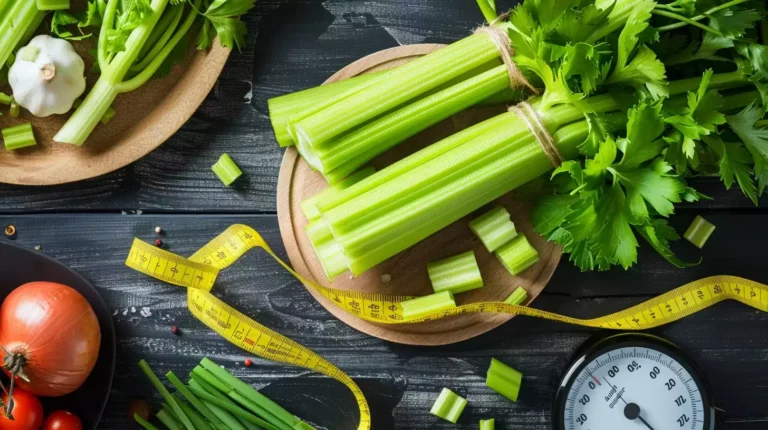Expert Insights: Is Fruit Smoothie Good For Weight Loss?
I once thought that consuming fruit smoothies regularly would automatically help me shed those extra pounds, but the reality turned out to be more complex.
While fruit smoothies can be a part of a weight loss strategy, the key lies in the ingredients and portion sizes. Some fruits are higher in natural sugars, which can affect weight loss progress if not balanced correctly.
So, are fruit smoothies truly good for weight loss? Let’s look into the answer.
Continue Reading to Understand These Key Points:
- Fruit smoothies support weight loss by providing vitamins, minerals, and antioxidants.
- Incorporating low-sugar fruits, greens, and healthy fats enhances weight loss benefits.
- Opt for homemade blends with nutrient-dense ingredients for effective weight management.
- Balanced smoothie recipes with protein sources help maintain fullness and support muscle retention.
Benefits of Fruit Smoothies for Weight Loss
Incorporating fruit smoothies into my diet can aid in weight loss. They’re rich in vitamins, minerals, and antioxidants, making them a nutrient-dense choice.
Including berries, bananas, and citrus fruits in smoothies provides natural sweetness without added sugars, supporting a healthy weight loss journey by increasing fiber intake for fullness and weight management.
Fruit smoothies offer a convenient way to consume a variety of fruits for a balanced diet essential for weight loss. Opting for lower-sugar fruits helps control calorie intake, making them a smart choice for shedding extra pounds.
Regular consumption of fruit smoothies can tastefully support weight loss goals and provide the benefits of fruits.
Ingredients for Effective Weight Loss Smoothies
To craft effective weight loss smoothies, carefully select nutrient-dense ingredients. Consider these key components:
- Low-sugar fruits: Use berries, apples, and citrus for natural sweetness and antioxidants without spiking blood sugar.
- Leafy greens: Add spinach, kale, or Swiss chard for fiber, vitamins, and minerals to aid in weight management.
- Healthy fats: Include avocado, chia seeds, or flaxseeds for satiety, heart health, and essential nutrients.
- Protein: Opt for Greek yogurt, tofu, or protein powder for muscle maintenance, fullness, and weight loss support.
- Low-calorie liquid base: Choose water, unsweetened almond milk, or coconut water to control calorie intake while keeping your smoothie hydrating and nutritious.
Tips for Making Healthy Smoothies
When making healthy smoothies, choose nutrient-rich ingredients to support overall well-being and weight management goals.
For a weight loss-friendly fruit smoothie, use low-fat milk or dairy-free alternatives as the base. Avoid added sugars by sweetening with fruits or monk fruit with stevia.
Boost the nutrition by adding seeds, nuts, and nut butter for healthy fats, protein, and omega-3s. Experiment with recipes to find a balance between taste and nutrition aligned with weight loss objectives.
Opt for nutrient-dense, low-calorie ingredients like leafy greens and fruits for a satisfying smoothie that supports your health and weight management journey.
Incorporating Smoothies Into Your Weight Loss Plan
Incorporating smoothies into a weight loss plan can provide a convenient and nutritious way to support your health and wellness goals. When done right, smoothies can be a valuable addition to your diet. Here are some tips to make the most of your weight loss smoothies:
- Choose nutrient-dense ingredients such as fruits, vegetables, and healthy fats to maximize the nutritional value of your smoothie.
- Incorporate protein sources like Greek yogurt, nut butter, or protein powder to enhance satiety and support muscle retention during weight loss.
- Be mindful of portion sizes and ingredients to avoid excess calories and sugars that can hinder your weight loss progress.
- Opt for homemade smoothies over store-bought options to have better control over the quality and quantity of ingredients used.
- Experiment with different smoothie recipes to find combinations that are both delicious and supportive of your weight loss goals.
Best Practices for Drinking Smoothies for Weight Loss
Shifting our focus to best practices for weight loss with smoothies involves creating homemade blends using whole fruits, vegetables, and protein sources like Greek yogurt. Watch portion sizes and avoid excessive sweeteners or high-calorie additives. To enhance the weight loss benefits of smoothies, consider incorporating protein powder. Protein powder benefits for weight loss include promoting feelings of fullness, maintaining muscle mass, and boosting metabolism. By adding a scoop of protein powder to your smoothie, you can create a more satisfying and effective meal replacement option.
Include ingredients like chia seeds, leafy greens, and healthy fats for satiety and nutrition. Customizing smoothies can support weight management goals by making mindful ingredient choices.
Monitoring ingredients is key for optimizing results in using smoothies for weight loss.
Final Thoughts
Fruit smoothies can be a valuable tool in a weight loss journey when made with nutritious ingredients and consumed mindfully. By focusing on whole fruits, balancing nutrients, and avoiding excessive sugars, smoothies can help reduce appetite and support weight management goals.
With the right ingredients and approach, incorporating smoothies into your routine can be a delicious and effective way to support your overall health and wellness. Stay tuned for more tips and tricks to maximize your smoothie success!







Love the focus on whole fruits and avoiding added sugars. It’s really easy to turn a healthy smoothie into a calorie bomb without even noticing. Been there! Anyone got a fave green smoothie mix they wanna share?
Absolutely! I’m all about spinach, pineapple, and a bit of ginger. Gives it a nice kick!
While the article makes some valid points about the nutritional values of smoothies, it falls short of discussing the importance of fiber in its whole form. Blending fruits and vegetables can sometimes reduce the effectiveness of fiber. Would have appreciated a more nuanced approach to this topic.
any recs for kid-friendly smoothies that aren’t too sweet?